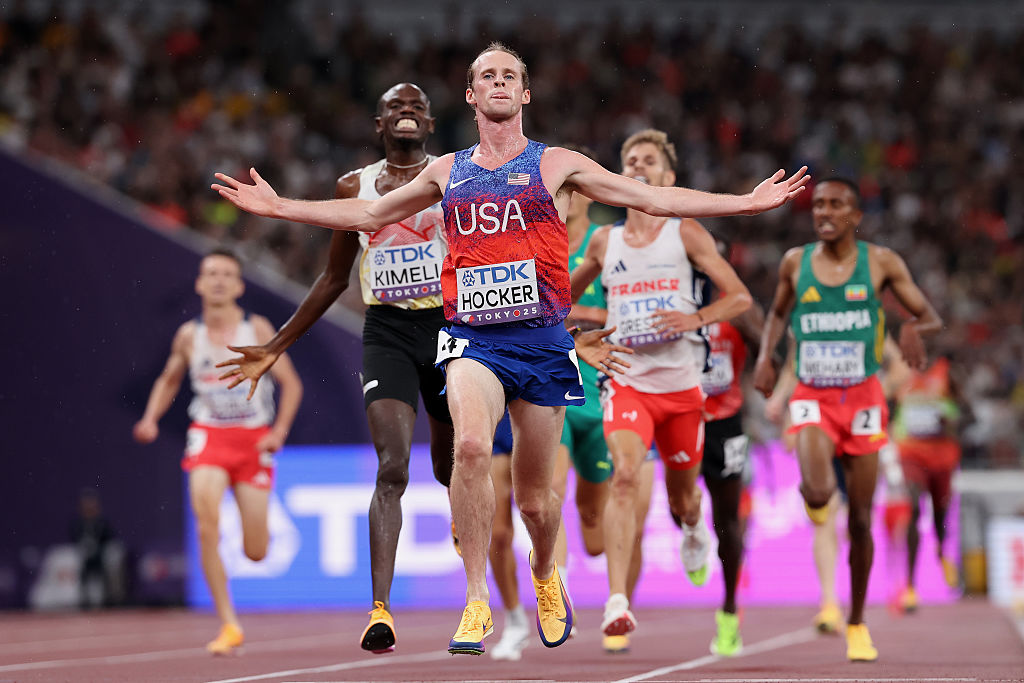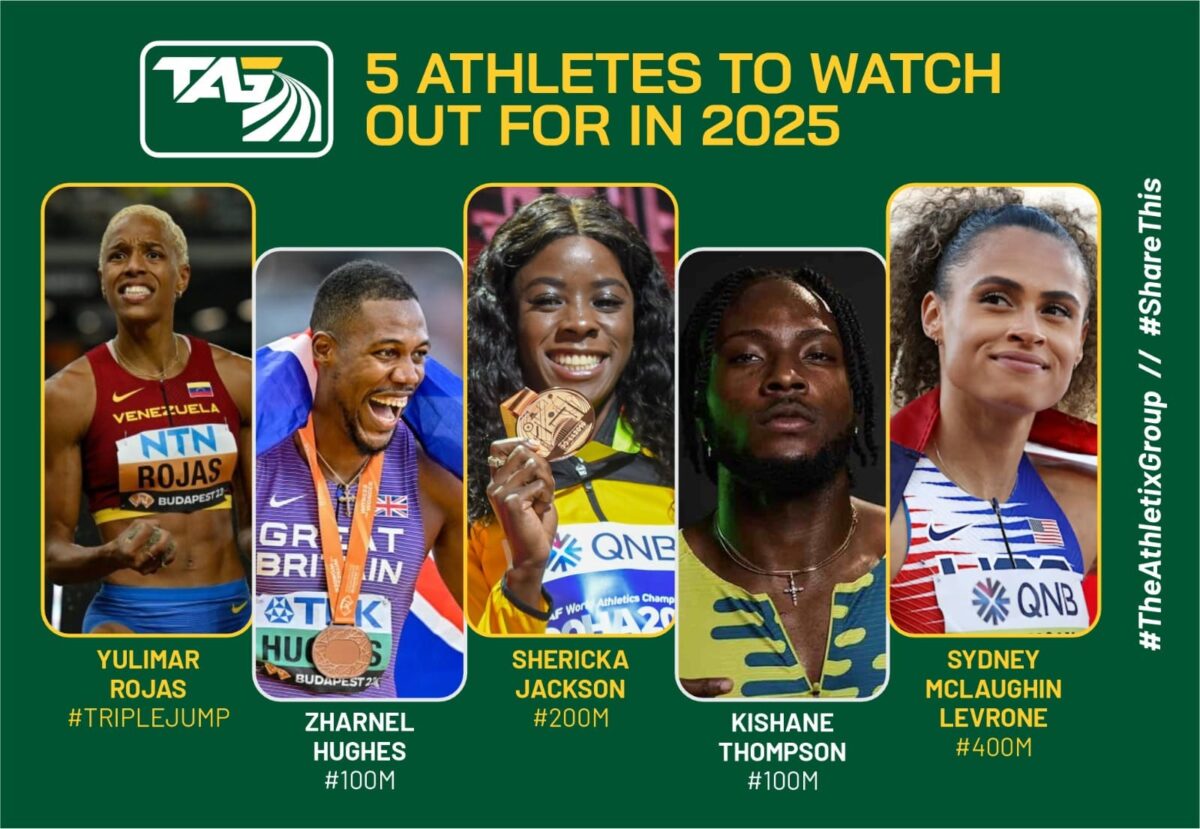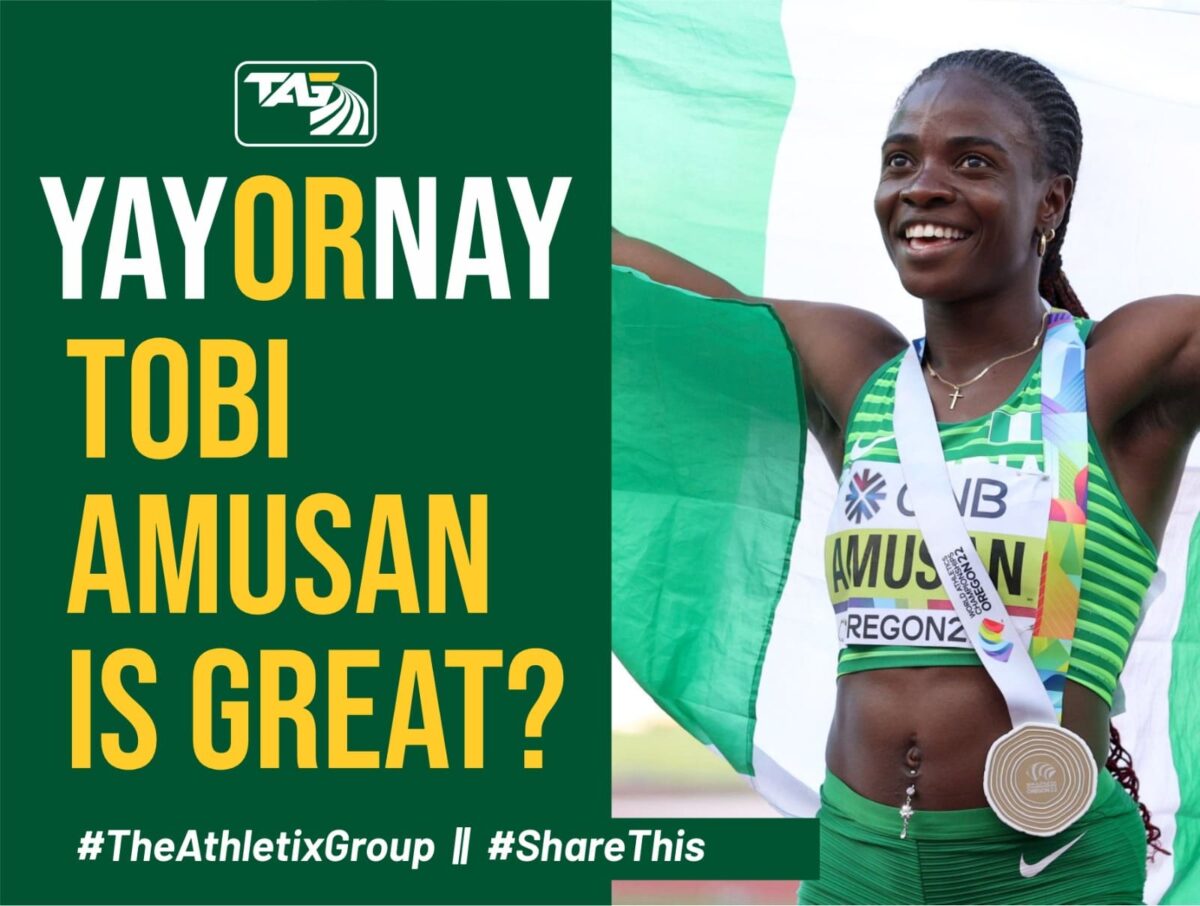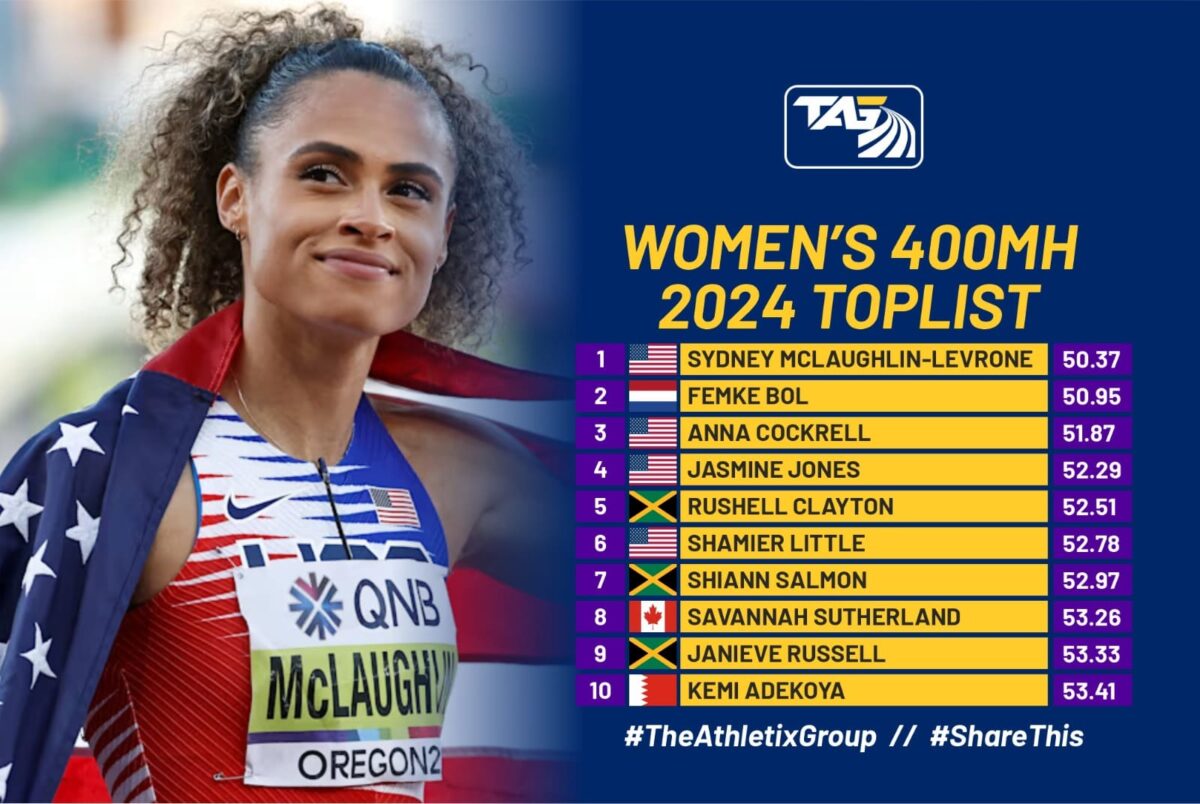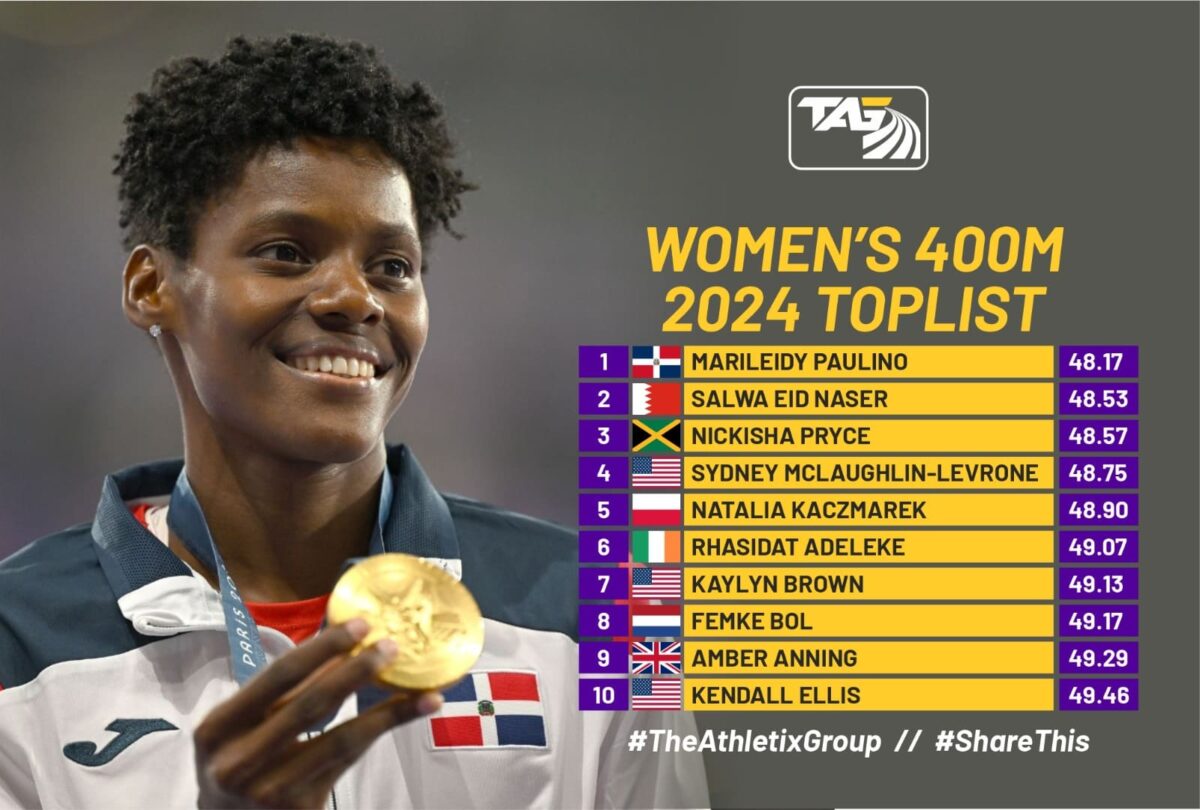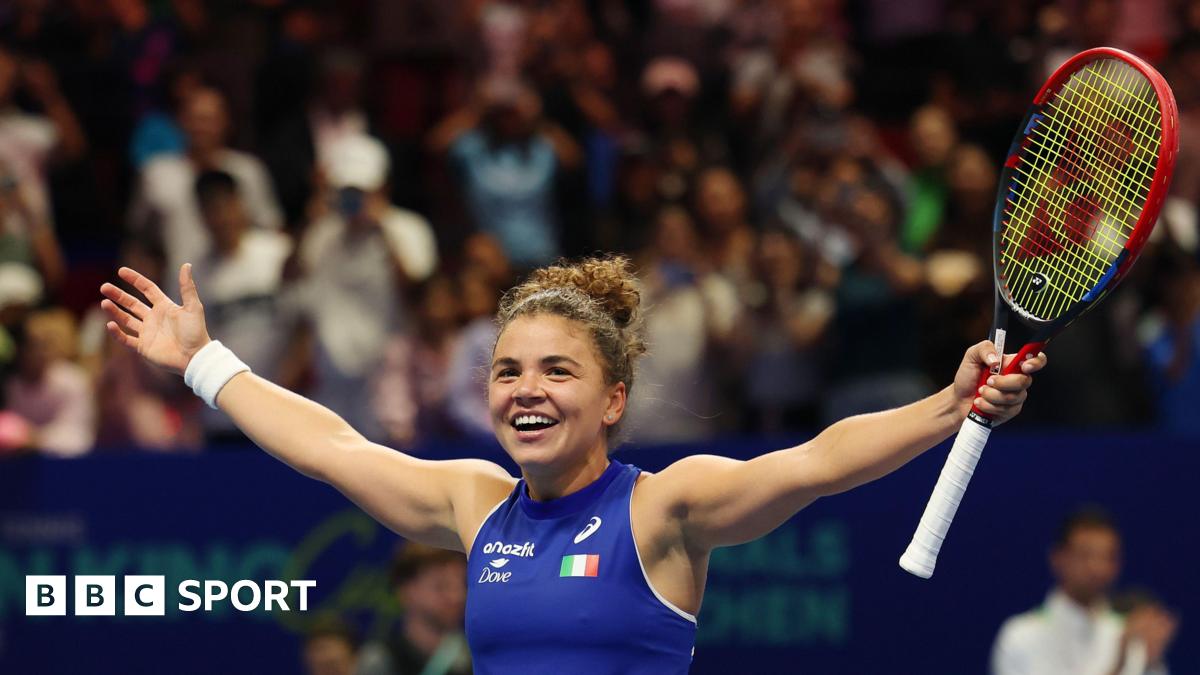
Billie Jean King Cup 2025: Jasmine Paolini helps Italy defend title with 2-0 win against United States
September 21, 2025
European soccer updates: Haaland scores early as Arsenal take on Manchester City
September 21, 2025
American storms to victory in Tokyo on Sunday ahead of Kimeli and Gressier as Ingebrigtsen is 10th and an out-of-sorts Mills is last.
Following his controversial disqualification for jostling in the men’s 1500m rounds, Cole Hocker posted a short message for his supporters and then came off social media for several days. “I completely dialled in,” he says. “I knew my fitness was there and it was a mental battle as much as anything else.”
The 24-year-old American did not let the 1500m disappointment affect his 5000m chances. He recalibrated and reminded himself that he is in the form of his life. The 5000m, he felt, was his to lose.
Keen to back up his Olympic 1500m victory with another global title, he arrived came into the longer race with a quiet confidence and the fastest kick finish in the field.
On the final bend there was a moment reminiscent of Eamonn Coghlan at the inaugural World Championships in 1983, when Hocker was fairly certain he’d win despite having 150m to go. “Well, I was 95 per cent sure,” he said.
Unlike Coghlan, there was no fist pump on the crown of the bend. Instead Hocker remained focused and unleashed his kick entering the home straight to power to gold in 12:58.30 with Isaac Kimeli of Belgium runner-up in 12:58.78 and Jimmy Gressier backing up his 10,000m victory at these championships with a 5000m bronze in 12:59.33.
Jakob Ingebrigtsen delivered a bold but doomed defence of his title. Still struggling with an Achilles problem, he managed to get himself into contention in the closing stages, even going to the front in trademark style. His final time was a respectable 13:02.00, too, but an injury-riddled year has robbed him of his strength and speed. Still, he would have had to go some to beat the inspired Hocker.
Most disappointed of all was George Mills, the lone Briton in the final becoming detached at a surprisingly early stage. He gritted it through and finished last in 13:44.88 but wasn’t in the mood for talking post race.
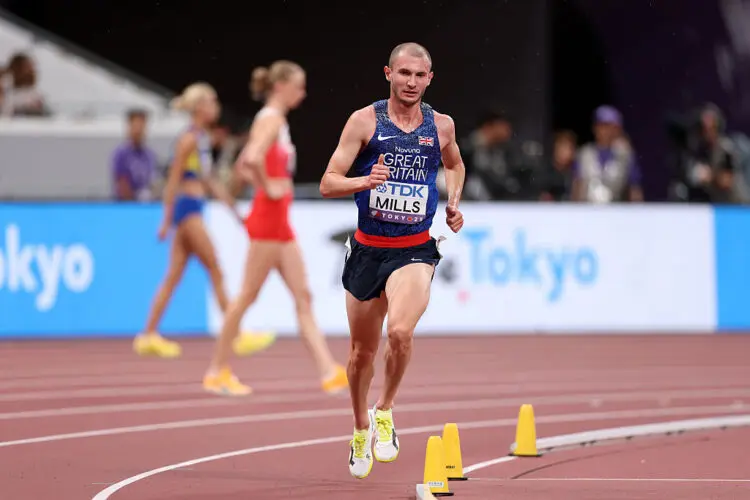
Despite having such a quick finish, the race began with Hocker going to the front. “I wanted to dictate the pace for as long as possible, which as it turned out wasn’t very long,” he said.
US team-mate and Olympic medallist Grant Fisher then led the field through 1000m in 2:40 and then another American, Nico Young, had a turn at the front, passing 2000m in 5:15. Hagos Gebrhiwet of Ethiopia then took over and with six laps to go, Mills was dropped by the nippy tempo.
Keen for the race not to turn into a last-lap burn-up – as the 10,000m a few days earlier had – Fisher went back into the lead through 3000m in 7:51. Ingebrigtsen, who had sat at the back in the early laps, then went to the front with just over four laps to go.
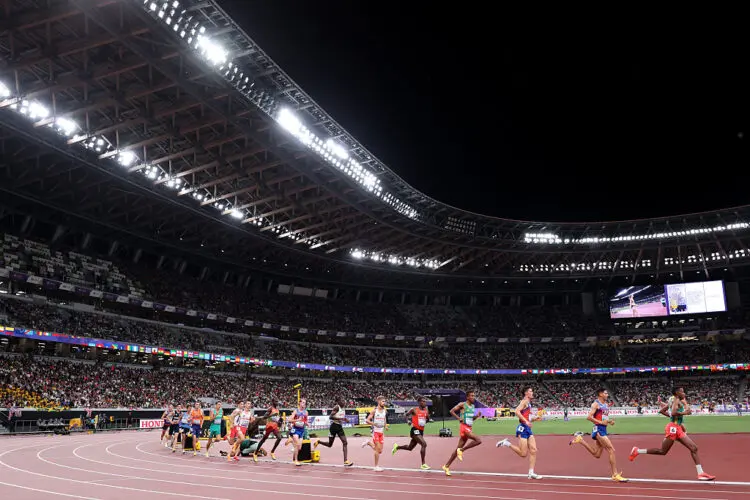
At this stage there were still 14 men in contention. But Hocker moved up gradually and unleashed a 53-second final lap, moving into third on the last bend before pouncing in the home straight as Kimeli and Gressier battled to stay in touch.
Ingebrigtsen admitted his Achilles is still giving him trouble although it is probably healthier than at any time in the last six months. On posting upbeat videos on social media in recent weeks, he told AW with a smile: “It’s just a mask you put on to hide your true feelings.”
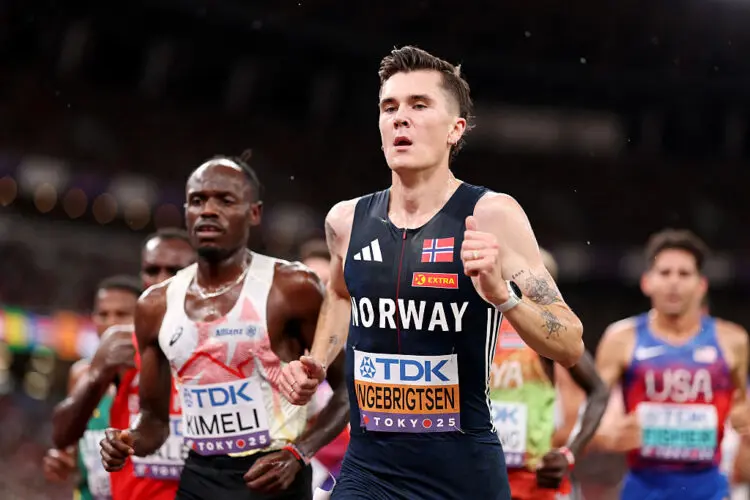
The Norwegian did not regret racing in Tokyo, though, saying it was the best he’s felt all week and that he is coming slowly back to form. “I will continue this improvement tomorrow … and through next year.”

